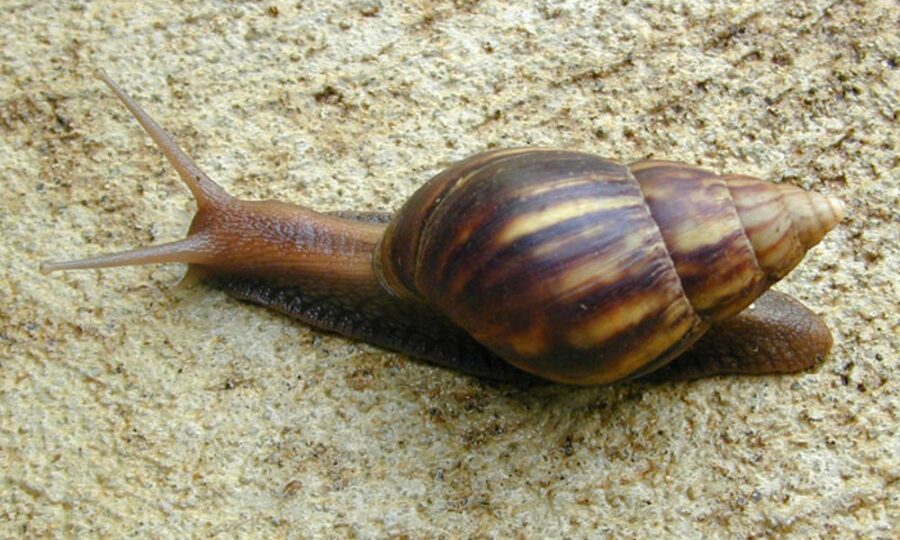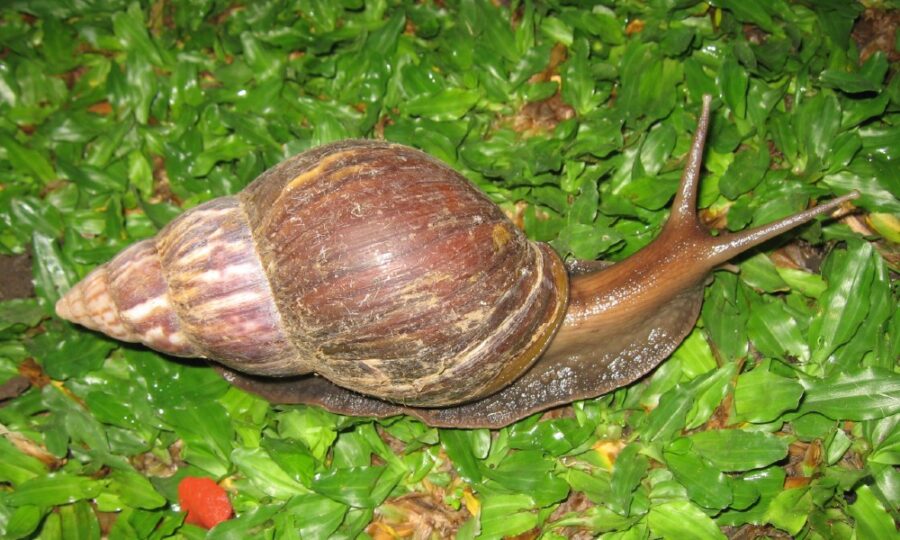Giant African Snails Shut Down Florida
Giant African land snails are wrecking Florida's ecosystem forcing the state of extreme measures.

Chaos has engulfed the Sunshine State this week as three separate Florida counties have become overrun with Giant African land snails, according to a write-up in Gizmodo. The snails, known to breed rapidly and asexually, are a major problem for the region, with the Florida Department of Agriculture and Consumer Services referring to them as among the most invasive pests on all of planet Earth.
As reports of killer orca whales sinking ships in the ocean and wild super-hogs destroying crops along the United States-Canada border continue to flood the news media cycle, perhaps the arrival of the Giant African land snails signals the next step in animals reclaiming the Earth from human innovation.
The African snails have been discovered wreaking havoc across Broward County, Lee County, and Pasco County, Florida, with quarantine zones growing in their slimy wake. Florida officials have been doing everything in their power to fully eradicate the fist-sized mollusks using toxic pesticides such as metaldehyde, which has been banned in a number of states due to its environmental impact.
According to Florida agriculturalists, this is a necessary risk, as the African snails are known to eat and destroy a number of important region-specific crops, including beans, melons, peas, cucumbers, and hundreds of others.
The gargantuan gastropods are such voracious eaters, in fact, that they’ll go so far as to eat the paint and stucco off building walls when nothing more appetizing is near. While they are native to some regions of East Africa, the giant snails have no natural predators in Florida, making them an unstoppable force of slimy evil.

Their slime brings with it additional health concerns, as their trails contain a deadly parasite called rat lungworm, which can cause meningitis in human beings, as well as immense embarrassment from having to disclose to your colleagues that you’ve contracted something called rat lungworm.
The African snails’ slime trails can leave a difficult-to-clean residue on plants which, when eaten by a human, can carry the parasite directly into the human body.
The Giant African snail is not the only carrier of diseases, though their rapid reproductive rate makes the containment of the mollusks nearly impossible. One single snail can lay thousands of eggs per year, and with no partner needed for reproduction, or natural predators in Florida, the snails can spread rapidly.
At the rate these African snails seem to progress through the state, Florida officials may need to call Ant-Man himself to save the state’s agriculture. The snails are able to burrow into the ground and remain alive in hibernation for up to a year, leaving previous attempts at containment successful for only a brief period of time.
Scientific data seems to reflect that this breed of African snails is genetically distinct from previous infestations the state has attempted to eradicate, though their persistence in the Sunshine State begs the question of how they arrived in the first place. While some suggest the snails could have been illegally owned pets that their owners released, others believe they were transported to the country to be eaten, as some parts of the world consider the disease-riddled gastropods to be a delicacy.
Regardless of their origins, the FDACS has established a helpline to allow citizens to assist in ridding their community of the African snails. If you or someone you know is in Florida, you can contact the Division of Plant Industry via email at [email protected], or by phone at 1-888-397-1517.












